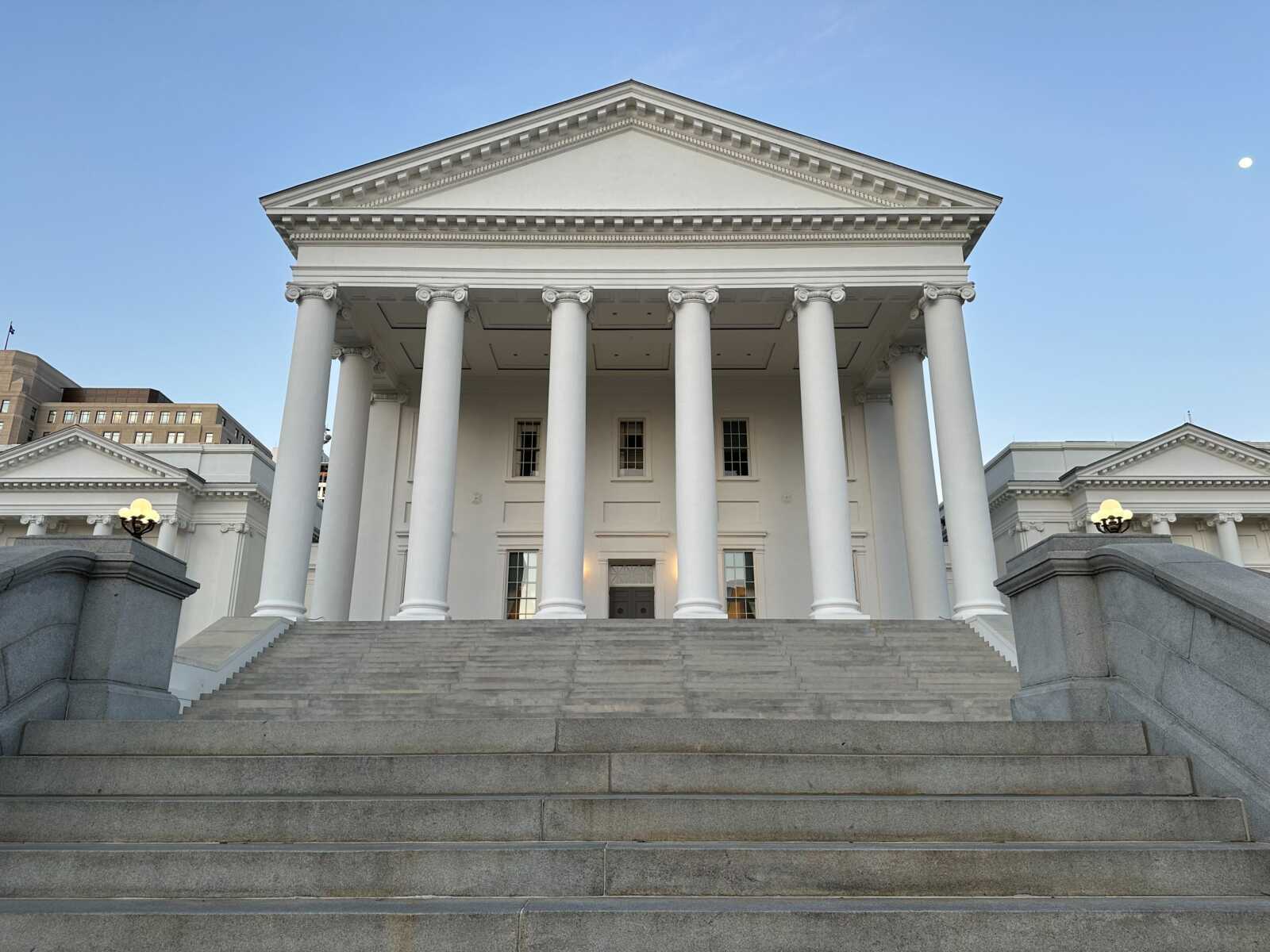
A new bill in the Virginia General Assembly would give the Arlington County Board the authority to change its structure without seeking further approval from state lawmakers.
Del. Patrick Hope’s HB 1225 would allow the Board to decide if it should retain its 5-member, at-large form of government or consider altering the size, to between three and 11 members, and changing to a district-based representation model. It would also allow the County Board Chair to be elected by popular vote for a 4-year term where currently, the practice is to rotate the chairship among members yearly.
Hope tells ARLnow he wants the County Board to have the same powers currently enjoyed by governing bodies of neighboring jurisdiction. As Virginia is a Dillon Rule state, local governments only have the powers conferred on them by the state legislature.
“The Arlington County Board is one of the weakest localities in Virginia. It is certainly the weakest of a locality of our size,” he said. “If the Board, this year, or the Board five years from now, wants to make these changes, they shouldn’t have to go to General Assembly and figure out who’s in control. They should have the power to make the decision how they want to run their government.”
The Board is not yet on board, however.
Members directed legislators last fall to “oppose any efforts that make changes to Arlington County’s form of government without the County Board’s explicit policy support.” Now, the Board is looking to punt on it until these questions can be put to the community as part of the year-long 2050 Visioning Process — where community members can envision what Arlington should look like in 26 years.
The visioning process is set to launch on Feb. 5.
“We are hopeful those who support such changes will engage more fully with the community during this process,” Board Chair Libby Garvey said in a statement. “Board members have connected with Delegate Hope to discuss our visioning process and the opportunities it offers to engage more fully with the community on H.B. 1225, to consider its implications, what it proposes to solve, and what the community thinks about it.”
“We believe continuing this bill to 2025 will provide the time needed to do that, and we offer the Arlington 2050 Initiative to help create the space for that discussion,” Garvey added.
Some of suggested changes in the bill are not new. Longtime former Arlington County Board member Jay Fisette said in 2017 that Arlington County should have an elected mayor and city council. Before that, in 2010, an attempt to enact district-based representation failed to gather enough valid petition signatures.
More recently, the Arlington County Civic Federation recommended making the Board bigger, among other changes, to improve diversity and competition.
Hope said the impetus now was the unexpected outcome of a 2022 bill, vetoed by Gov. Glenn Youngkin, that would have allowed the County Board to hire an independent policing auditor to oversee Arlington’s police oversight board — something other jurisdictions could have done without going to the state.
Arlington’s independent policing auditor now reports to County Manager Mark Schwartz, who also oversees the Arlington County Police Department. Hope and the Arlington branch of the NAACP, concerned about conflicts of interest, chafed at this decision.
“It’s not the Governor’s business, nor the House or the Senate, who Arlington County hires,” said Hope. He previously championed a 2015 bill, which passed, allowing the County Board to hire an independent auditor tasked with conducting performance reviews and finding inefficiencies in county government.
Hope tasked an aide with finding where else Arlington lacks parity with other jurisdictions. The three in the bill reflect areas where Hope says there is support from constituents, like the Arlington County Civic Federation and the NAACP. Granting the County Board hiring authority is not in the bill but could be introduced in future sessions, he said.
Hope says he has sought a meeting with the Board, other top-level county officials and constituents on the bill for the last year and a half but none ever materialized. Since the bill’s filing, Garvey and Vice-Chair Takis Karantonis traveled to Richmond to advocate for wrapping the bill’s ideas into the 2050 Visioning Process.
“We want [the 2050 Visioning Process] to be an inclusive, positive, and constructive way to discuss big topics about Arlington’s future,” Garvey said. “If the community sees changing our form of government as a top priority for future efforts, we welcome that conversation. We just want to make sure it is a conversation that includes as many Arlingtonians as possible.”
The bill already has a strong proponent in Civic Federation Board Chair Adam Henderson, who told ARLnow it would advance a key goal of its Task Force in Governance and Election Reform: “namely fostering parity for Arlington in local jurisdiction authority, thus allowing us to contemplate changes in our form of government and other areas of local government responsibility.”
“It is an opportunity for Arlington residents to have a greater say in how they are governed, and is in keeping with the Federation’s 108-year record of advocacy for responsible, responsive, accountable, and transparent government,” Henderson said.
For the NAACP, the bill could allow the County Board to correct wrongs from a century ago when the current Board structure was selected to weaken minority participation. It was effective, the NAACP says, as it took 50 years for a person of color to be elected to the Board.
To this day, only four people of color have joined the County Board.
“This bill is permissive in nature meaning it broadens powers available. It is a step towards eradicating the legacies of racism and discrimination that still bind our community even today,” said NAACP Arlington Branch President Michael Hemminger.

